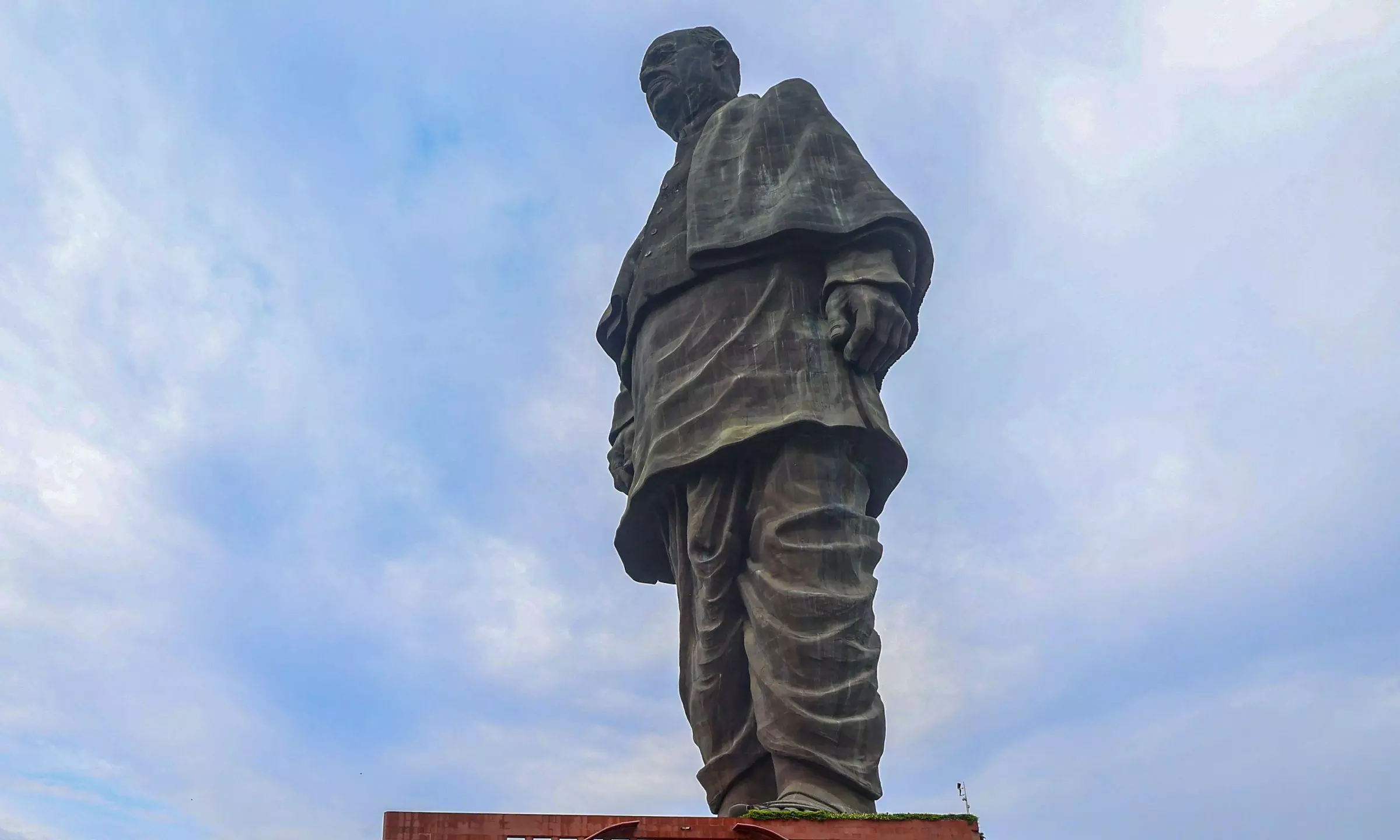
Congress hits out at BJP-RSS over ‘misappropriation’ of Sardar Patel's legacy
Sardar Patel would have been dismayed by the distortion of his ideals by an ideology he blamed for creating the atmosphere behind Mahatma Gandhi’s assassination, the Congress said

On the occasion of Sardar Vallabhbhai Patel's birth anniversary on Friday (October 31), the Congress launched a sharp critique of the BJP-RSS, asserting that revered national icons would be appalled their legacy was being appropriated by an ideology which, as Patel himself once noted, had created the climate that led to the 'ghastly tragedy' of Mahatma Gandhi’s assassination.
Congress general secretary in-charge communications Jairam Ramesh took a swipe at the Modi government and claimed that since 2014 especially, history has been subject to brazen misrepresentation and distortion by "G2 and their ecosystem", referring to the year when BJP assumed office at the Centre.
He also pointed out several occasions when Congress leaders remembered Patel for his achievements and contributions in shaping the Indian subcontinent.
'30 years of comradeship'
"Today as a grateful nation celebrates Sardar Patel@150 we must also recall that on February 13, 1949, Jawaharlal Nehru had unveiled a statue of Sardar Patel in Godhra, where the Iron Man of India had started his legal practice. Nehru's speech on that occasion must be read and re-read to get an insight into their powerful and profound partnership of over three decades," Ramesh said on X.
Also Read: Jairam Ramesh attacks RSS on centenary using Gandhi, Patel quotes
"In a message on the eve of Sardar Patel's 75th birth anniversary, Nehru had said '[F]ew persons can have such a long and notable record of service to their credit as Sardar Patel has had. Even so, he is at the helm of affairs, vital to the nation and carrying a great responsibility. I look back on thirty years of comradeship and intimate contact with him in national activities. It has been a period full of ups and downs and great happenings and all of us have been tested to the utmost. Sardar Patel has emerged from these ordeals as a dominating figure on the Indian scene, to whom vast numbers look for guidance. May he be spared long to us and the country'," he said.
Today as a grateful nation celebrates Sardar Patel@150 we must also recall that
— Jairam Ramesh (@Jairam_Ramesh) October 31, 2025
1. On February 13, 1949, Jawaharlal Nehru had unveiled a statue of Sardar Patel in Godhra, where the Iron Man of India had started his legal practice. Nehru's speech on that occasion must be read… pic.twitter.com/c5GdTAPz5Z
In his post, he also noted an event that happened on September 19, 1963. The then President of India, Dr S Radhakrishnan, unveiled a statue of Sardar Patel at a prominent roundabout in New Delhi, close to Parliament House and the office of the Election Commission. Nehru was also present then and had chosen the simple but powerful inscription for the statue as the "Architect of India's Unity", he said.
Also Read: How Bardoli Satyagraha helped Vallabhbhai Patel earn the title ‘Sardar’
Ramesh further recalled that on October 31, 1975, the then Prime Minister Indira Gandhi had presided over the concluding function of the Sardar Vallabhbhai Patel birth centenary year and paid a fulsome tribute to Patel, bringing out his many distinctive achievements and contributions. It still makes for compelling reading, he added.
Brazen misrepresentation
Ramesh said ever since BJP assumed power at the Centre in 2014, history has been subject to brazen misrepresentation and distortion by G2 and their ecosystem.
"Selfless icons would have been horrified by their misappropriation by an ideology that had no role whatsoever in the freedom movement, in the making of the Constitution, and that, in the words of Sardar Patel himself, had created an atmosphere that made the ghastly tragedy of January 30th, 1948 possible," Ramesh noted, citing a letter of Sardar Patel to Dr Syama Prasad Mookerjee on July 1, 1948.
Also Read: BJP has no icons who fought for freedom, thus honouring Sardar: Priyanka
Iron Man of India
Born in Nadiad, Gujarat, in 1875, Patel was a pivotal figure in India's struggle for Independence. Renowned for his exceptional leadership and unyielding commitment to national integration, he is fondly remembered as the Iron Man of India. He died in 1950.

